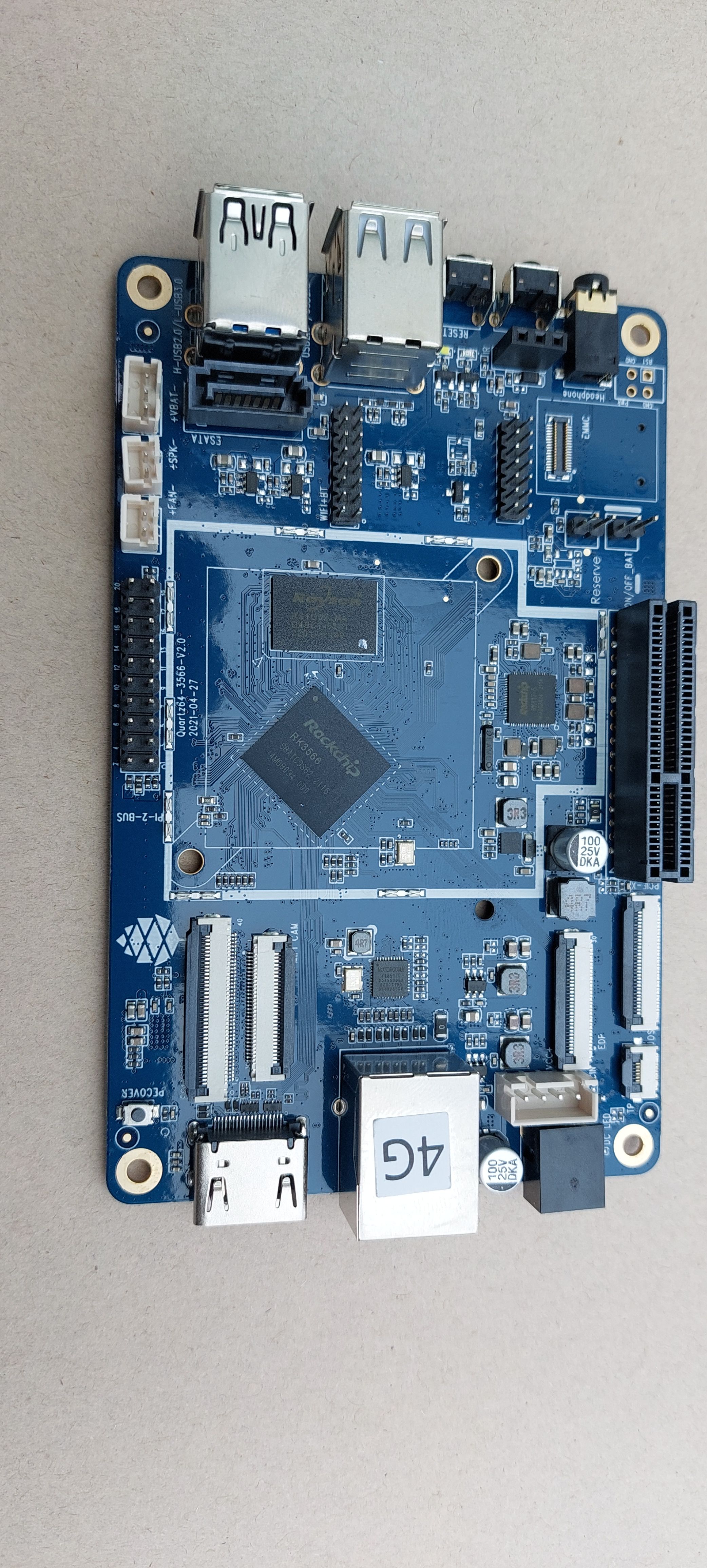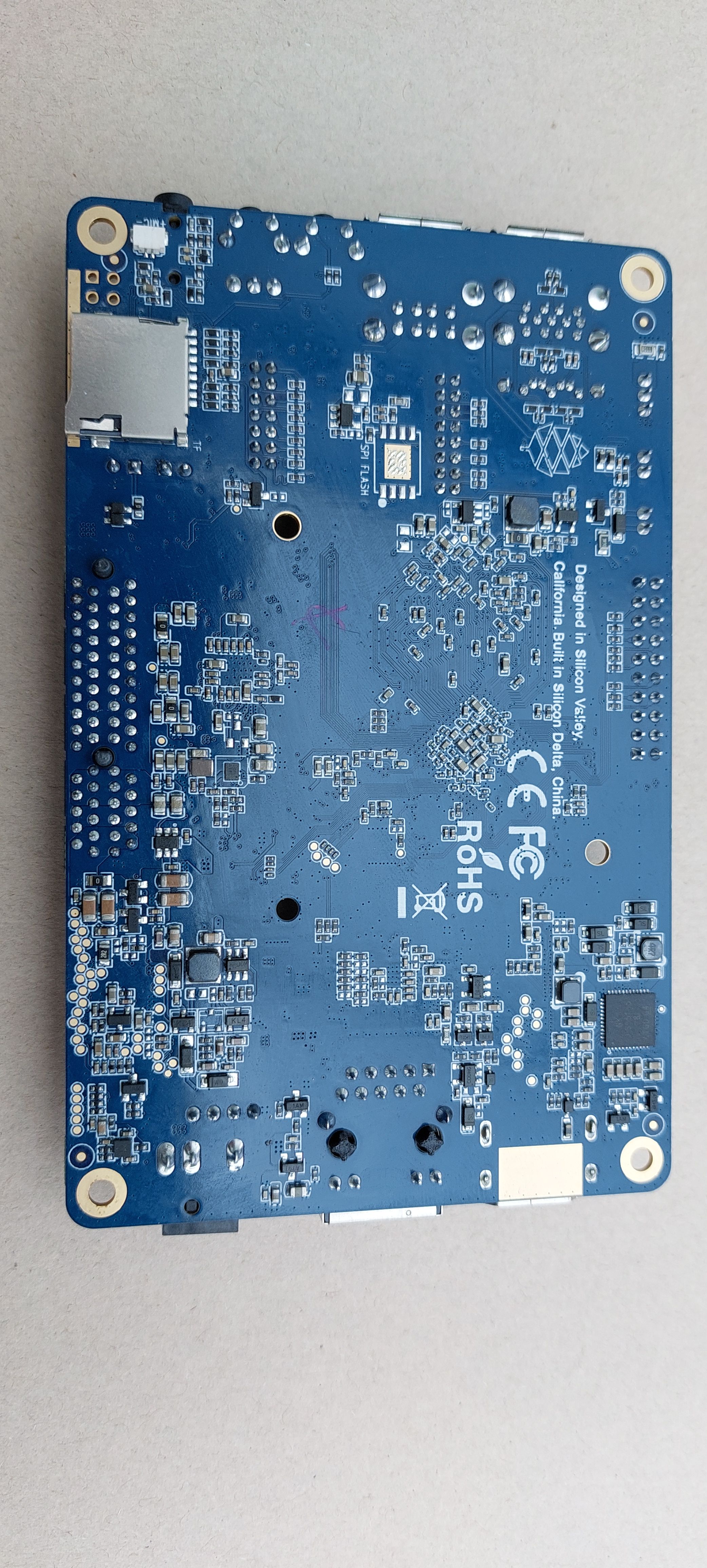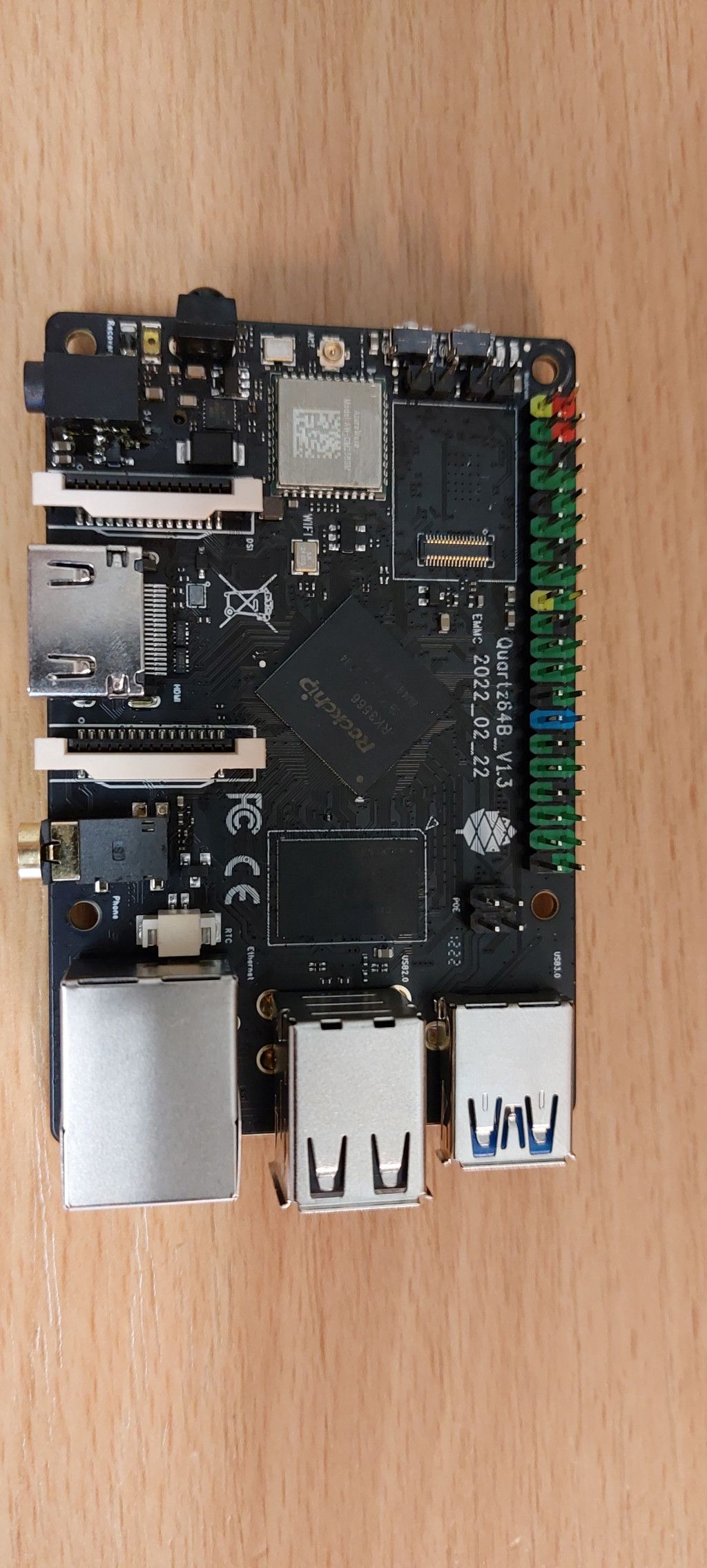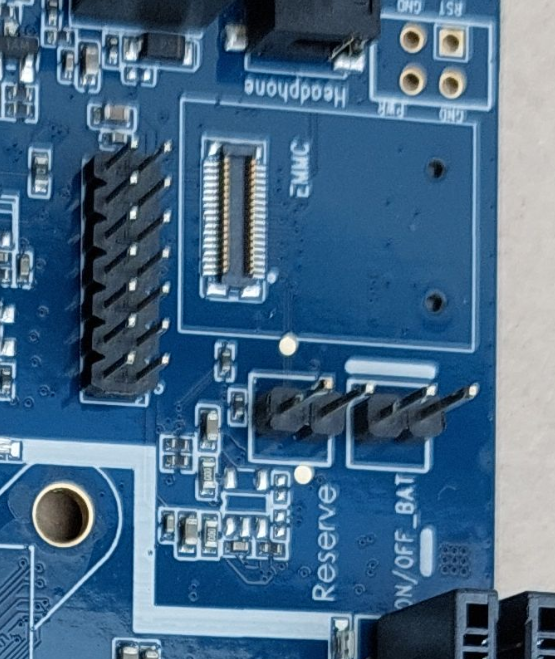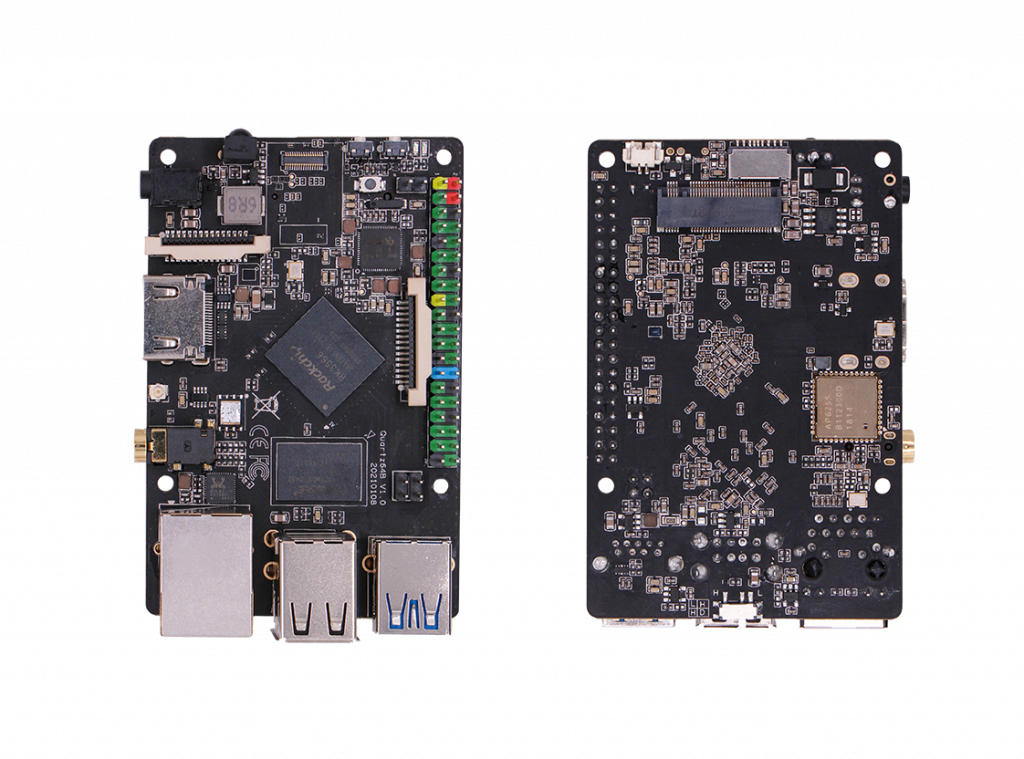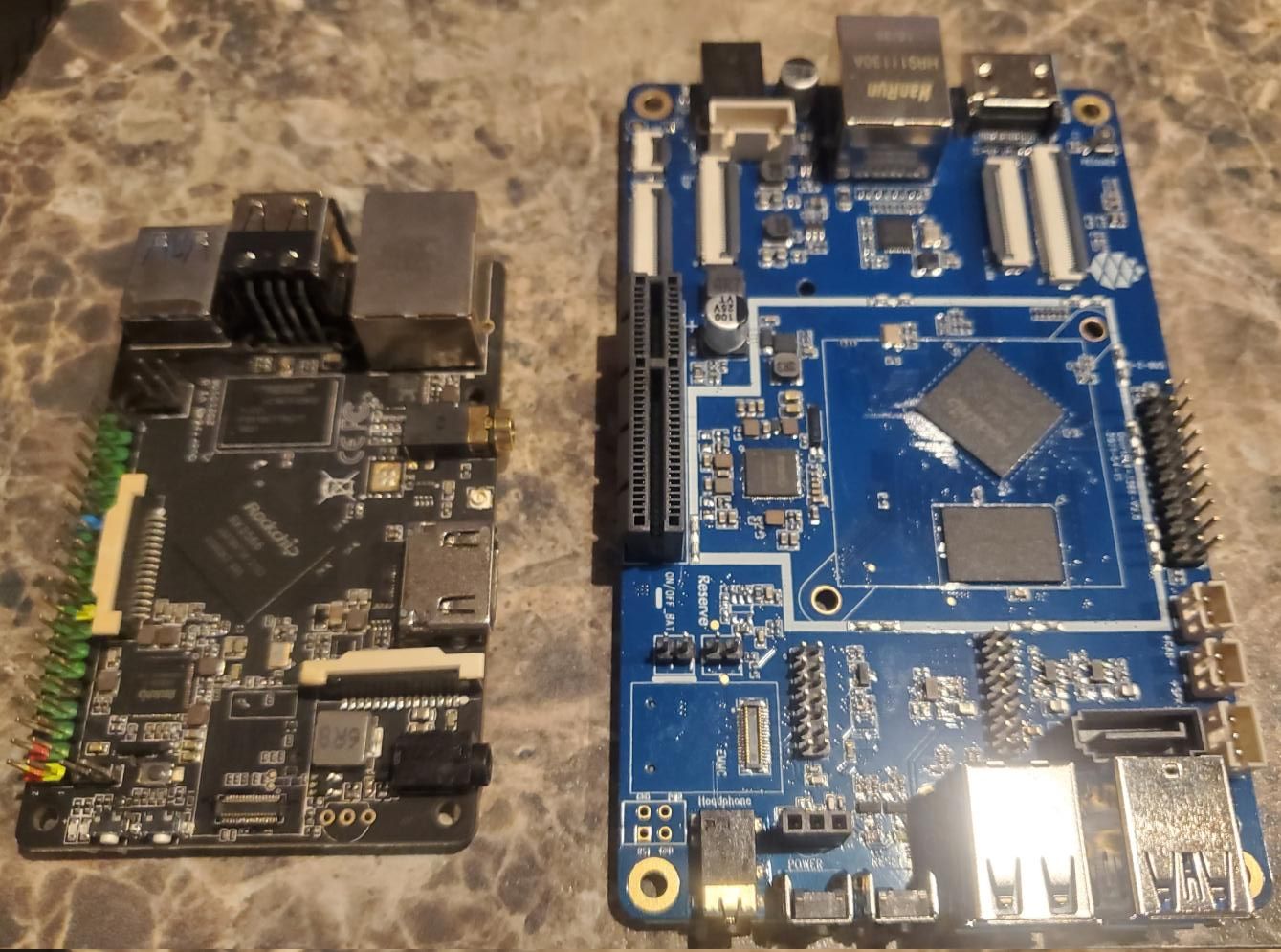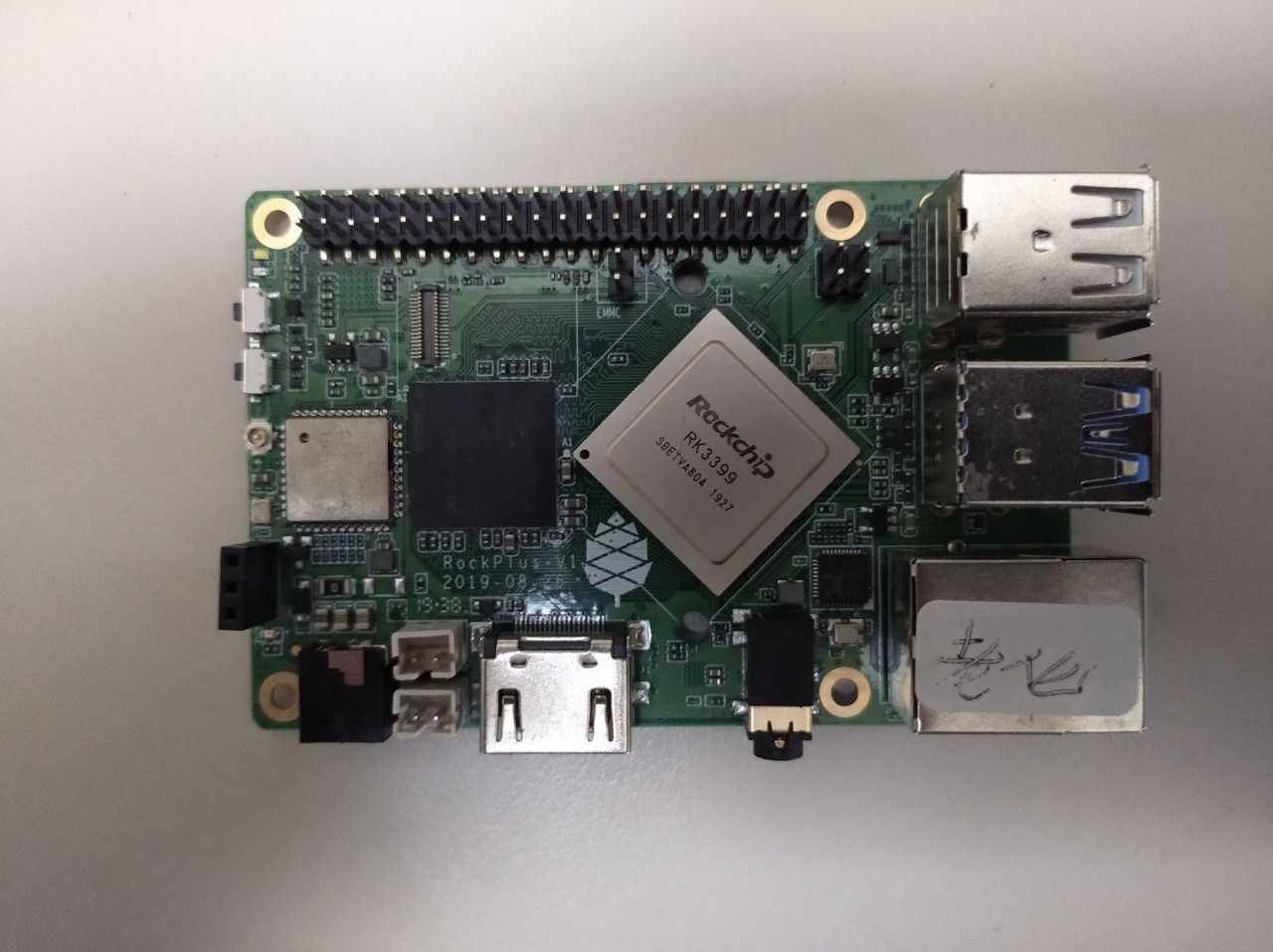Quartz64 - Model A eingetroffen
-
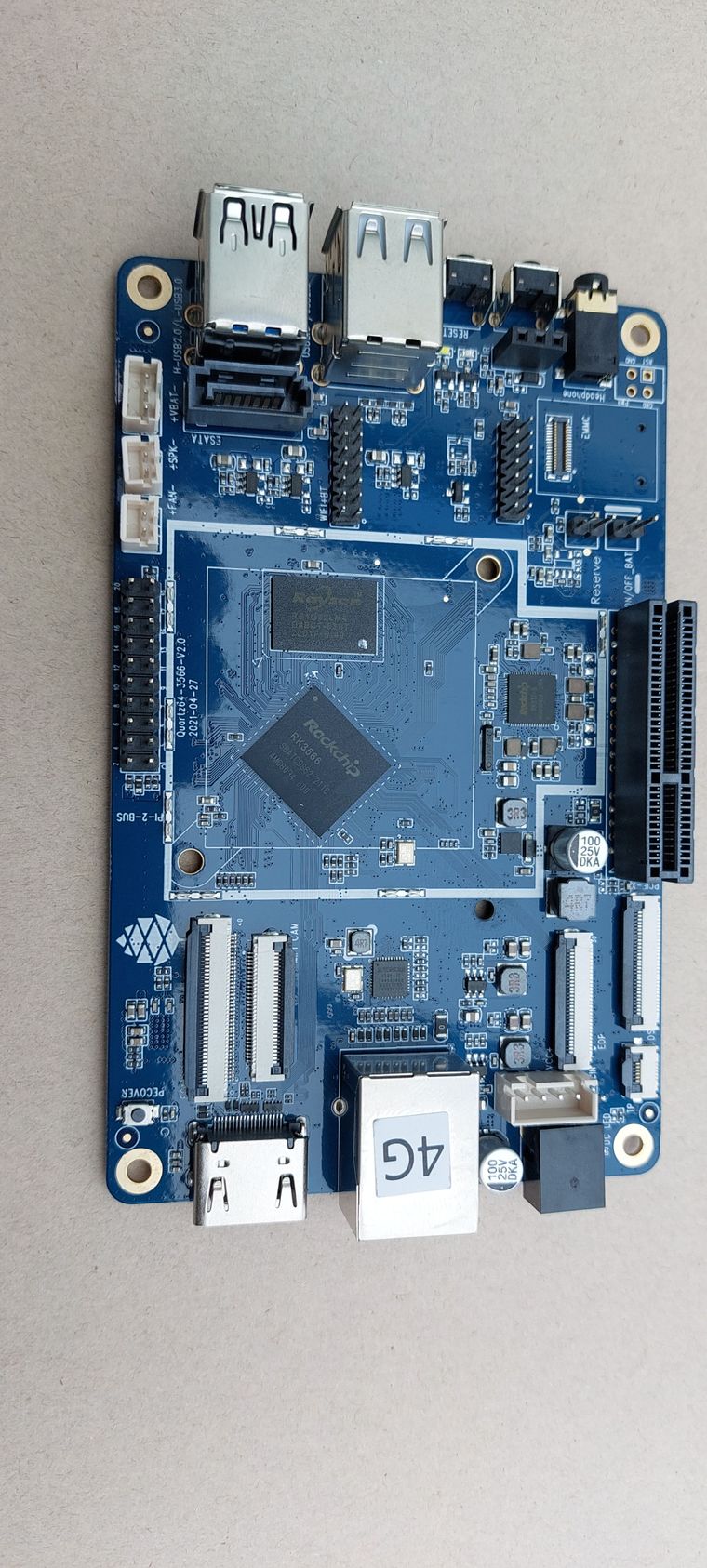
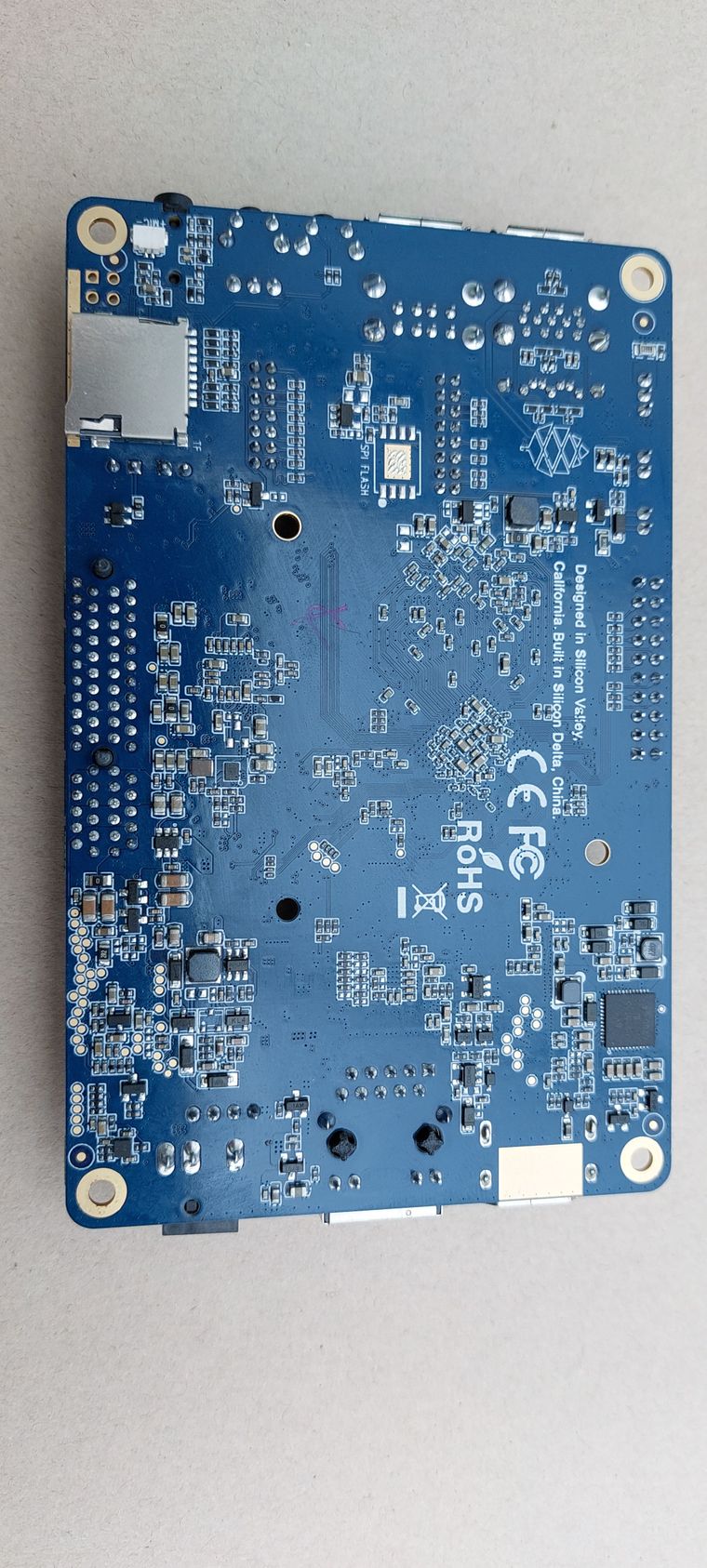
Ich denke, die meisten die den ROCKPro64 auch schon haben, werden sich direkt wohl fühlen
 Die Spannungsversorgung ist schon mal gleich. Die UART-Schnittstelle funktioniert so wie hier schon beschrieben.
Die Spannungsversorgung ist schon mal gleich. Die UART-Schnittstelle funktioniert so wie hier schon beschrieben.Was fällt auf, was neu ist, im Vergleich zum ROCKPro64?
- Steckanschluss VBAT
- Steckanschluss SPK
- Steckanschluss ON/OFF _BAT
- Steckanschluss Reserve
- Steckanschluss ESATA
Den Rest schauen wir uns später mal an.
Hier schon mal ein Bootlog von einem Test Image des Manjaro Teams.

Manjaro-ARM-minimal-quartz64-bsp-test7 - Pastebin.com
Pastebin.com is the number one paste tool since 2002. Pastebin is a website where you can store text online for a set period of time.
Pastebin (pastebin.com)
Leider noch mit Fehlern, aber mit der Zeit wird das sicher was werden. Das Positive, der uboot scheint schon mal zu leben und versucht ein Image zu laden.
-
 F FrankM verschob dieses Thema von Quartz64 am
F FrankM verschob dieses Thema von Quartz64 am
-
 F FrankM verschob dieses Thema von Quartz64 - A am
F FrankM verschob dieses Thema von Quartz64 - A am
